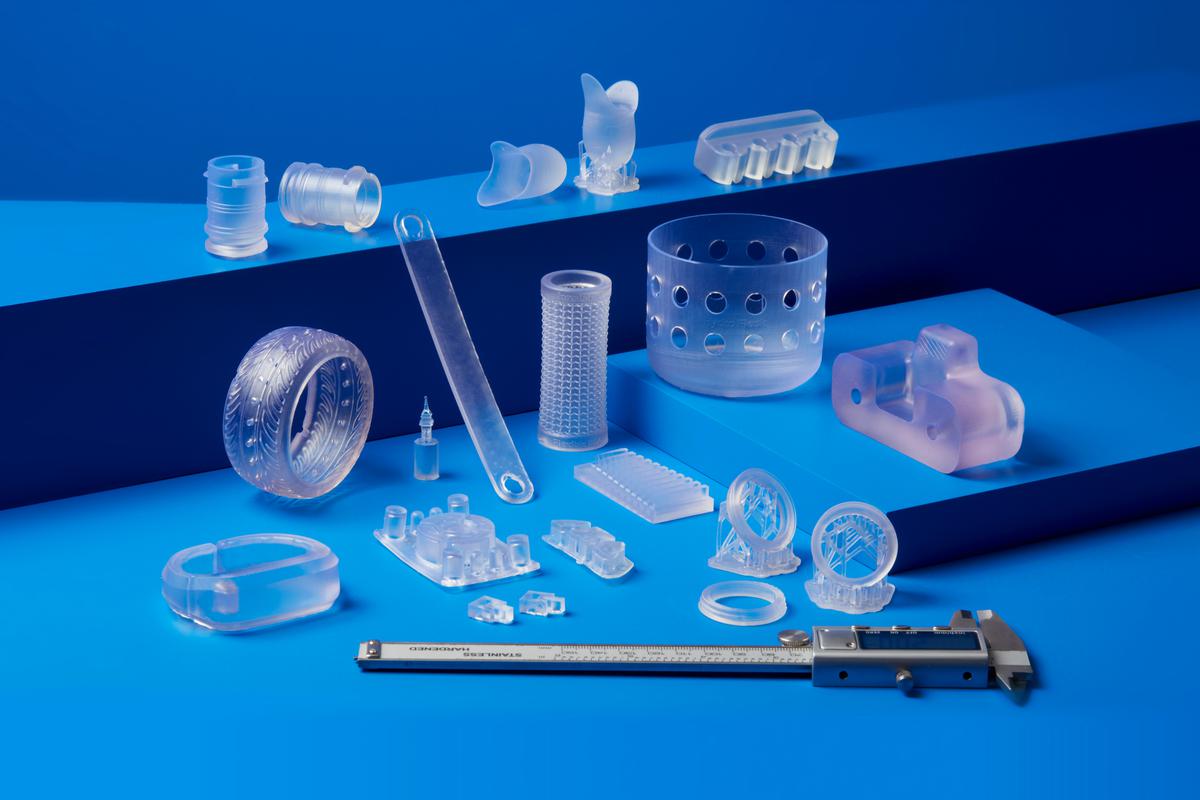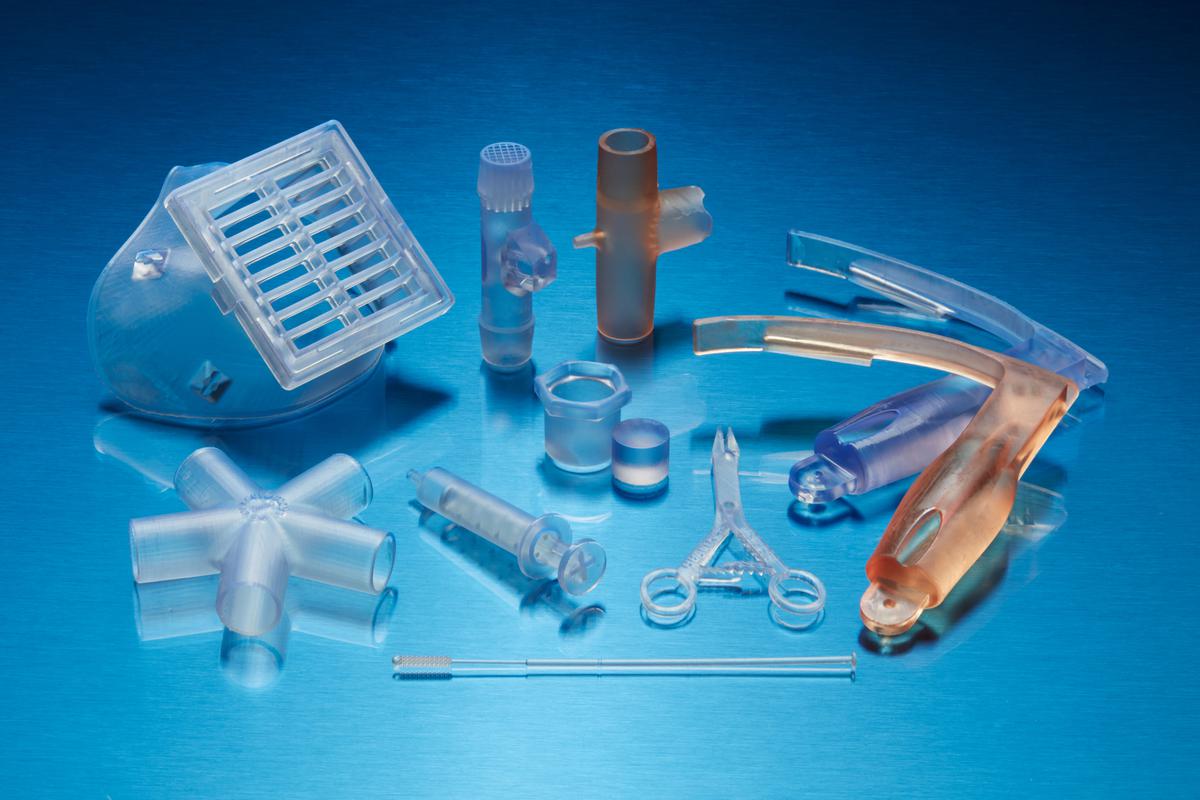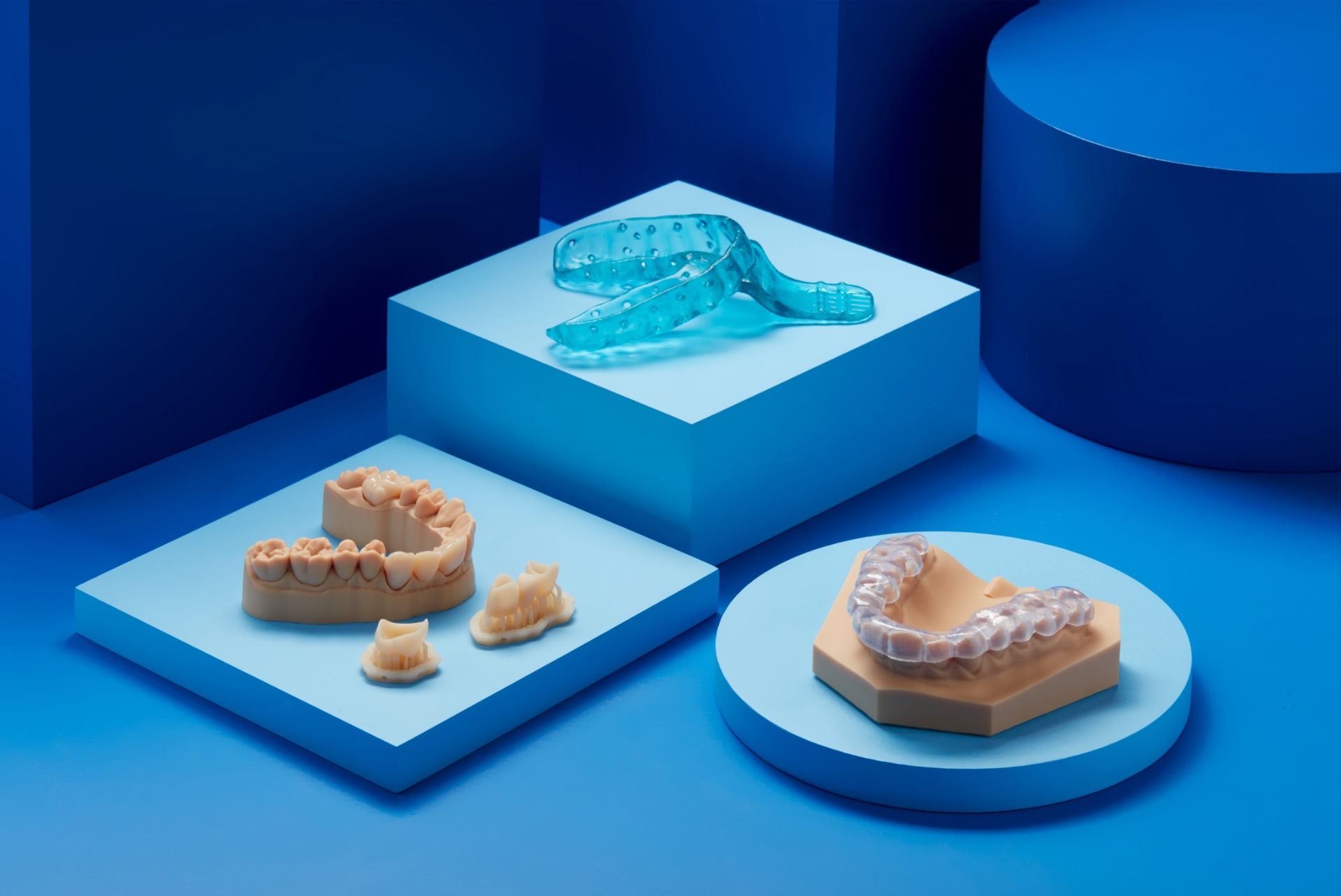SLA 3D printer manufacturer Formlabs has announced the release of six new resins for use with its Form 3, Form 3B, and Form 2 3D printers. The portfolio extension aims to expand what’s possible on the company’s professional resin systems, bringing the total number of proprietary materials to more than 25.
One of the new resins marks the introduction of a new family of Flexible and Elastic resins for product design and manufacturing purposes – Flexible 80A. A further two resins are to be added to the BioMed line of biocompatible resins for healthcare applications – BioMed Clear and BioMed Amber. The final three resins have been formulated through the Materials Partnership Platform with BEGO, and are exclusively aimed at dental professionals.
The Flexible and Elastic family
Formlabs has reformulated its current Flexible resin to give us the new Flexible 80A resin. It is described as a stiff soft-touch material and gets its name from its Shore durometer level, 80A, which is supposed to simulate flexible rubber or TPU. It can withstand multiple cycles of bending, flexing, and compression, making it perfect for robotics, grips, seals, and cushioning.
Joining Flexible 80A in the Flexible and Elastic Resins family is Formlabs’ existing Elastic resin (renamed to Elastic 50A). It is the company’s softest engineering material and is commonly used as a replacement for silicone. Much like the newly formulated 80A, it can bend, stretch, and compress repeatedly without tearing.

The BioMed family
The first biocompatible resin is quite simply named BioMed Clear. It is a strong, hard material designed for long-term medical devices, planning surgical procedures, custom implants, and research. Additionally, it is wear resistant, has low water absorption, and is compatible with most common sterilization methods.
BioMed Amber, on the other hand, is more suitable for biocompatible applications requiring short-term skin or mucosal membrane contact, although it’s still fairly rigid and can be sterilized with common solvent disinfection. Both BioMed resins are manufactured in Formlabs’ trusted in-house ISO 13485 facility.

The Dental family
With the three new additions to the Dental family of resins, Formlabs seems to want to cover all bases of a dental professional’s workflow. The first resin, Dental LT Clear V2, is fracture-resistant, discoloration-resistant, and can be polished to transparency. As a result, it’s perfect for long-term splints and occlusal guards (see-through mouth guards).
The second dental resin is aptly named Custom Tray Resin and is designed for – you guessed it – custom impression trays. It is one of Formlabs’ fastest curing resins and can be used to fabricate a tray in less than an hour, enabling higher throughput production. The direct printed trays can be used to take precise dental impressions for crowns, bridges, implants, and dentures.
The sixth and final new resin is intended to extend Formlabs’ reach into the temporary restorations market. Temporary CB Resin is available in four VITA shades and can produce durable seven-unit bridges and other smaller temporary restorations lasting up to 12 months. The extensive list of options for this resin includes crowns, bridges, inlays, onlays, and veneers.

Since the invention of SLA in the 80s, research into photocurable resin has skyrocketed. Earlier this year, researchers from China formulated a high-strength vegetable oil-based resin for the SLA process. The combination of soybean oil and urethane epoxy allowed the researchers to fabricate structurally sound parts without sacrificing biodegradability. Elsewhere, in Madrid, researchers have 3D printed a set of self-sensing composite parts using DLP 3D printing technology. They reinforced a commercially available photopolymer resin with carbon nanotubes to further functionalize it with electrical conductivity, citing promising applications in structural health monitoring.
The nominations for the 2020 3D Printing Industry Awards are now open. Who do you think should make the shortlists for this year’s show? Have your say now.
Subscribe to the 3D Printing Industry newsletter for the latest news in additive manufacturing. You can also stay connected by following us on Twitter and liking us on Facebook.
Looking for a career in additive manufacturing? Visit 3D Printing Jobs for a selection of roles in the industry.
Featured image shows Flexible 80A resin. Photo via Formlabs.



